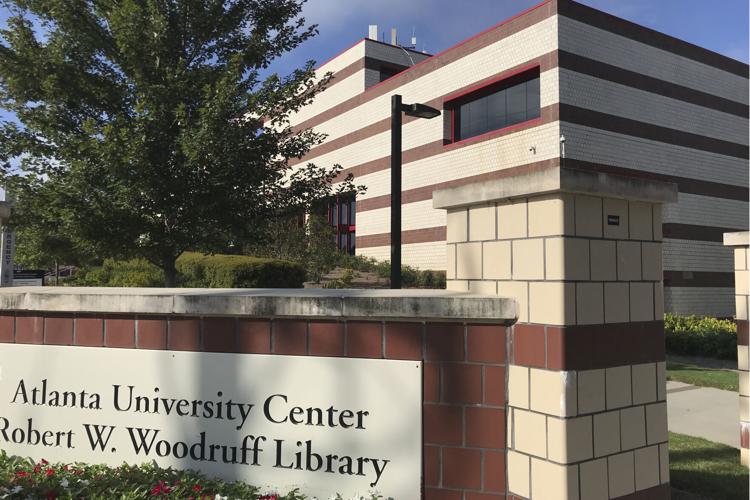
The campus of Clark Atlanta University is seen April 21, 2019, in Atlanta.
BATON ROUGE, La.ô ã A series of reported threats toward historically Black colleges and universities across the U.S. on Thursday led to lockdown orders, canceled classes and heightened security.
Authorities did not elaborate on the type of threats that were made and no injuries have been reported. The FBI told The Associated Press that they are taking the "hoax threat calls" seriously and that there is "no information to indicate a credible threat."
Although lockdowns have since been lifted, schools that received the threats continue to act with an abundance of caution. In an era of mass shootings ã and following a wave of violence Wednesday and a spate of hoax calls about active shooters at the start of the school year ã some universities opted to call off classes for the rest of the week and send students home.
U.S. Rep. Troy Carter, a Louisiana Democrat, called the threats "reprehensible attacks" and said that any threat made against HBCUs is "a threat against us all."
People are also reading…
"These attacks cannot be tolerated, minimized, or ignored," he said. "They must be met with swift and decisive action."
Southern University in Louisiana, which reported a "potential threat to campus safety" on the 8,200-student campus and put students under lockdown for about an hour. At Alabama State University, which sits near downtown Montgomery and has an enrollment of about 3,500, students were ordered to shelter-in-place as police searched each building on campus.
About two hours later, the university said that it had received the "all-clear" from police. However, the school said that while the "immediate threat has been resolved" students were asked to shelter in place in their dorms and classes were cancelled for the remainder of the day.

Baton Rouge Police block the entrance of Southern University's campus at the corner of Harding Boulevard and Scenic Highway, Sept. 11, in Baton Rouge, La., after a threat led administers to announce a lockdown.
Clark Atlanta University in Georgia, Virginia State University, Hampton University in Virginia and Bethune-Cookman University in Florida also reported threats.
Precautionary measures came at a time of heightened worry on school campuses over violence following the assassination of conservative activist Charlie Kirk at a Utah Valley University and a shooting at a Colorado high school.
Swatting incidents typically increase after violent events, putting schools on edge, said Don Beeler, chief executive officer of TDR Technology Solutions, which tracks swatting calls and offers technology to prevent them. The safety measures that schools may implement following potential threats could be heightened, such as cancelling class for a few days, instead of just one day.
"Anything that happens in the next week is going to get an overreaction than what you normally see," Beeler said.
Other HBCUs that did not receive threats announced that they, too, were tightening security.
South Carolina State University required anyone coming on campus, in Orangeburg, to show a photo ID after the threats started surfacing. Spelman College in Atlanta, Georgia ã which neighbors a university that did receive a threat ã issued a lockdown Thursday and said it was amping up security measures.
At the start of the school year, at least a dozen college campuses received hoax calls about active shooters. The realistic-sounding calls, some of which had gunshots that could be heard in the background, prompted universities to issue lockdowns with directions to "run, hide, fight."
Cline reported from Baton Rouge, Louisiana. Associated Press Writers Kimberly Chandler in Montgomery, Alabama; Heather Hollingsworth in Mission, Kansas; and Jeffrey Collins in Columbia, South Carolina











